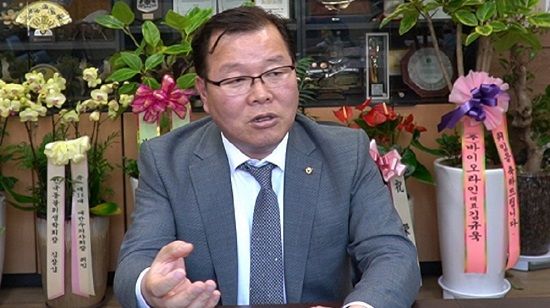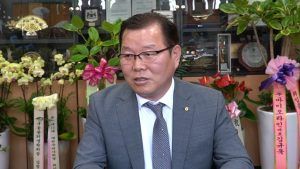
【코코타임즈】 With over 10 million people living with companion animals, the new paradigm in this era needs not only vets but everyone involved in the industry, says the country's veterinary chief.
"Like an orchestra working together in perfect harmony, we are determined to do our best for the society in which people and animals coexist," the newly-elected Korean Veterinary Medical Association (KVMA) President Hur Ju-hyung told the COCOTimes Wednesday. "We should all work together to make things happen."
The 26th KVMA leader, who kicked off his role on 2 March stressed the importance of reforming the nation's health care system to better cope with emergencies, including the current Covid-19 epidemic. The country added 152 new cases Thursday, bringing the country's total infections to 8,565.
Regarding the government's new initiative on electronic prescriptions, Hur said he was in line with the new system but extra administrative work has put too much burden on practitioners.
With the new regulations that came into force last month, veterinarians are now required to issue electronic prescriptions. The aim is to prevent the abuse of medications for animals.
The president, who used to run his own veterinary clinic in Incheon, said the country should make it "mandatory to have their pets vaccinated at the vet."
Hur previously served as the World Veterinary Association councillor for Asia and Oceania and the Federation of Asian Small Animal Veterinary Associations executive board member.
Here are questions and answers with the president:

Q. You are the first KVMA chief elected by direct election. Please share your plans ahead.
A. It will surely be different from the past. Vets' rights have long faced restrictions from many interest groups since our rights were part of the livestock industry. With this new team, I am determined to put an end to this tradition.
Q. As the first leader with an experience of running your own vet, your pledges reflected more practical side of the industry.
A. As an example, veterinary practices do charge value added tax (VAT) unlike human health care. Since the VAT was put on veterinary care in 2011, bills began to soar, and it ended up laying the blame on surgeons for the increased cost. This is not fair.
Q. Your suggestion to change ministries in charge gained much attention. The new electronic prescription system has sparked controversy in the industry. Please share your thoughts on this.
A. First of all, I think this electronic prescription system is not realistic. Pharmacies sell medicines without our prescriptions. We need some sort of compensation for this extra work of recording the same information over again.
And I believe it will be better for health and welfare ministry to tackle animal diseases than the current the agriculture, food and rural affairs ministry. Having a separate team within the ministry could be another option to better cope with such diseases.
Q. Do we need professionals with expertise?
A. Specialisation will naturally follow.
The United States began to nurture vets specialising in pathology and toxicology in the 1950s. As the market for companion animals started to grow, expertise in such fields as dermatology followed suit.
I think we need to respect such professionals with a certification reward to begin with, the rest will follow.
Q. With animal diseases being a serious issue, the role of vets to tackle such issues has become more important than ever before. Please share your thoughts on this.
A. The government should reform the health care system and have veterinary care included in it. I think that's the only way for us to handle such national crisis like the Covid-19 epidemic.









